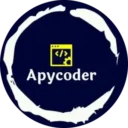Hi,This is Asif Khan,If you’re considering learning Python, you’re making a great choice. Python is a versatile and powerful programming language that’s perfect for beginners. However, having some foundational knowledge before diving into Python can make your learning journey smoother and more effective. In this blog, we’ll cover essential skills and concepts you should learn before starting with Python to set yourself up for success.
Why Preparing Before Learning Python Matters
Starting Python with a solid foundation helps you:
- Understand Concepts More Easily: Basic knowledge makes it easier to grasp Python’s syntax and programming concepts.
- Solve Problems Efficiently: Pre-existing skills can help you approach problems logically and effectively.
- Advance Faster: With foundational knowledge, you’ll progress through Python more quickly and with greater confidence.
1. Basic Computer Skills
Before diving into Python, ensure you’re comfortable with basic computer operations. This includes:
- Operating Systems: Familiarize yourself with navigating both Windows and macOS, as well as basic troubleshooting.
- File Management: Know how to create, save, and organize files and folders. This is essential for managing your Python projects and scripts.
SEO Keyphrases: Basic computer skills for programming, learning file management, operating systems basics
2. Understanding of Algorithms and Problem-Solving
Before learning Python, having a grasp of algorithms and problem-solving techniques is highly beneficial.
Key Concepts to Learn
- Basic Algorithms: Understand sorting algorithms like Bubble Sort and searching algorithms like Binary Search.
- Problem-Solving Techniques: Learn how to break down complex problems into smaller, manageable parts and solve them step-by-step.
SEO Keyphrases: Algorithms for beginners, problem-solving techniques, learning algorithms before Python
3. Familiarity with Basic Mathematics
A solid foundation in mathematics can greatly aid your Python learning process, especially in areas like data manipulation and algorithm design.
Mathematical Concepts to Review
- Basic Arithmetic: Ensure you’re comfortable with addition, subtraction, multiplication, and division.
- Algebra: Understand concepts like variables, equations, and functions, which are useful for programming logic.
- Statistics: Basic knowledge of statistics can be helpful for data analysis tasks in Python.
SEO Keyphrases: Math skills for programming, basic arithmetic for Python, algebra and statistics basics
4. Introduction to Computer Programming Concepts
Before jumping into Python, familiarize yourself with core programming concepts that apply to most programming languages.
Core Concepts to Explore
- Variables and Data Types: Understand what variables are and how to use different data types like integers, floats, and strings.
- Control Structures: Learn about if statements, loops (for and while), and how they control the flow of a program.
- Functions: Grasp the basics of defining and using functions to organize and reuse code.
SEO Keyphrases: Programming basics for beginners, understanding variables and data types, control structures and functions
5. Basic Understanding of Software Development Tools
Knowing how to use essential software development tools will make learning Python more efficient.
Tools to Get Acquainted With
- Text Editors: Learn to use text editors like Notepad++, Sublime Text, or VSCode for writing and editing code.
- Integrated Development Environments (IDEs): Familiarize yourself with IDEs like PyCharm or Thonny, which are specifically designed for Python development.
- Version Control: Basic knowledge of version control systems like Git can be helpful for managing your code and collaborating with others.
SEO Keyphrases: Software development tools, text editors for coding, using IDEs for Python, version control basics
6. Understanding How Computers Work
Having a basic understanding of how computers operate can provide context for your Python programming efforts.
Key Concepts to Learn
- Computer Hardware: Understand the basic components of a computer, such as the CPU, RAM, and storage.
- How Code Runs: Learn how code is executed by the computer, including the concept of compilation and interpretation.
SEO Keyphrases: Understanding computer hardware, how code runs on a computer, basic computer science concepts
7. Familiarity with Basic Web Technologies
If you’re interested in web development with Python, having some knowledge of basic web technologies can be helpful.
Web Technologies to Learn
- HTML: Understand the basics of HTML for structuring web pages.
- CSS: Learn basic CSS for styling web pages.
- JavaScript: Get a foundational knowledge of JavaScript, which is essential for adding interactivity to web pages.
SEO Keyphrases: Web technologies basics, learning HTML and CSS, JavaScript fundamentals before Python
8. Introduction to Databases
Knowing how databases work will be beneficial, especially if you plan to work on data-driven applications with Python.
Database Concepts to Explore
- Database Basics: Learn about relational databases and concepts like tables, rows, and columns.
- SQL: Familiarize yourself with basic SQL (Structured Query Language) for querying and managing databases.
SEO Keyphrases: Introduction to databases, learning SQL basics, database concepts for beginners
Conclusion
Preparing yourself with these foundational skills before diving into Python will make your learning experience smoother and more productive. By understanding basic computer skills, algorithms, mathematics, programming concepts, and more, you’ll be well-equipped to tackle Python programming with confidence.
Ready to start learning Python? Equip yourself with these essential skills and take the first step toward becoming a proficient Python developer.
Get In Touch:
